45 start with P start with P
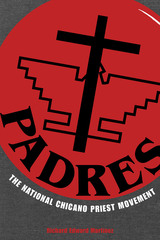
From the 1848 Treaty of Guadalupe Hidalgo to the 1960s, Mexican American Catholics experienced racism and discrimination within the U.S. Catholic church, as white priests and bishops maintained a racial divide in all areas of the church's ministry. To oppose this religious apartheid and challenge the church to minister fairly to all of its faithful, a group of Chicano priests formed PADRES (Padres Asociados para Derechos Religiosos, Educativos y Sociales, or Priests Associated for Religious, Educational, and Social Rights) in 1969. Over the next twenty years of its existence, PADRES became a powerful force for change within the Catholic church and for social justice within American society.
This book offers the first history of the founding, activism, victories, and defeats of PADRES. At the heart of the book are oral history interviews with the founders of PADRES, who describe how their ministries in poor Mexican American parishes, as well as their own experiences of racism and discrimination within and outside the church, galvanized them into starting and sustaining the movement. Richard Martínez traces the ways in which PADRES was inspired by the Chicano movement and other civil rights struggles of the 1960s and also probes its linkages with liberation theology in Latin America. He uses a combination of social movement theory and organizational theory to explain why the group emerged, flourished, and eventually disbanded in 1989.

Painted Words presents a facsimile, decipherment, and analysis of a seventeenth-century pictographic catechism from colonial Mexico, preserved as Fonds Mexicain 399 at the Bibliothèque Nationale de France. Works in this genre present the Catholic catechism in pictures that were read sign by sign as aids to memorization and oral performance. They have long been understood as a product of the experimental techniques of early evangelization, but this study shows that they are better understood as indigenous expressions of devotional knowledge.
In addition to inventive pictography to recount the catechism, this manuscript features Nahuatl texts that focus on don Pedro Moteuczoma, son of the Mexica ruler Moteuczoma the Younger, and his home, San Sebastián Atzaqualco. Other glosses identify figures drawn within the manuscript as Nahua and Spanish historical personages, as if the catechism had been repurposed as a dynastic record. The end of the document displays a series of Nahua and Spanish heraldic devices.
These combined pictorial and alphabetic expressions form a spectacular example of how colonial pictographers created innovative text genres, through which they reimagined pre-Columbian writing and early evangelization—and ultimately articulated newly emerging assertions of indigenous identity and memorialized native history.
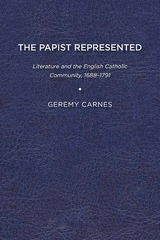
The Papist Represented reincorporates the history of the English Catholic community into the field of eighteenth-century literary studies. It examines the intersections of literary, religious, and cultural history as they pertain to the slow acceptance by both Protestants and Catholics of the latter group’s permanent minority status. By focusing on the Catholic community’s perspectives and activities, it deepens and complicates our understanding of the cultural processes that contributed to the significant progress of the Catholic emancipation movement over the course of the century. At the same time, it reveals that this community’s anxieties and desires (and the anxieties and desires it provoked in Protestants) fuel some of the most popular and experimental literary works of the century, in forms and modes including closet drama, elegy, the novel, and the Gothic. By returning the Catholic community to eighteenth-century literary history, The Papist Represented challenges the assumption that eighteenth-century literature was a fundamentally Protestant enterprise.
Published by University of Delaware Press. Distributed worldwide by Rutgers University Press.

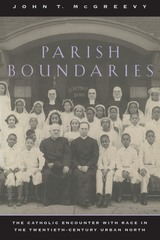
"Parish Boundaries can take its place in the front ranks of the literature of urban race relations."—Jonathan Dorfman, Washington Post Book Review
"A prodigiously researched, gracefully written book distinguished especially by its seamless treatment of social and intellectual history."—Robert Orsi, American Historical Review
"Parish Boundaries will fascinate historians and anyone interested in the historic connection between parish and race."—Ed Marciniak, Chicago Tribune
"The history that remains to be written will rest on the firm foundation of Mr. McGreevy's remarkable book."—Richard Wightman Fox, New York Times Book Review

In his lifetime, French philosopher Jacques Maritain (1882–1973) achieved a reputation as both a leading Catholic intellectual and as an outspoken critic of antisemitism. Here historian Richard Francis Crane traces the development of Maritain’s opposition toward antisemitism and analyzes the Catholic appreciation of Judaism that animated his stance. Crane probes the writings and teachings of Maritain—from before, during, and after the Holocaust—and illuminates how his ideas altered Christian perceptions of Jews and Judaism during his lifetime and continue to do so today.
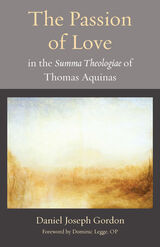
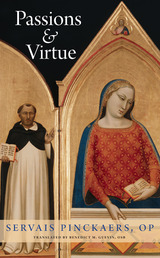
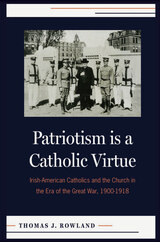
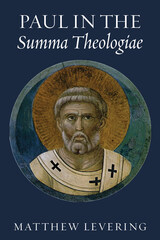

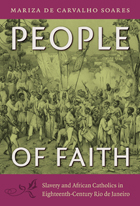
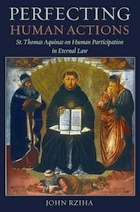
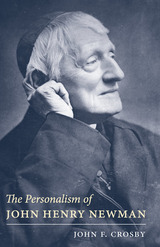

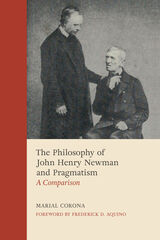
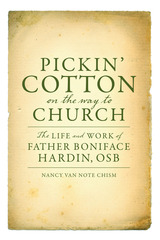
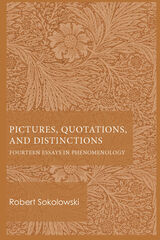

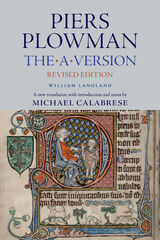
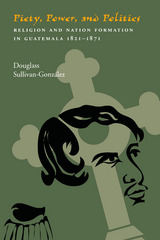
Douglass Sullivan Gonzalez examines the influence of religion on the development of nationalism in Guatemala during the period 1821-1871, focusing on the relationship between Rafael Carrera amd the Guatemalan Catholic Church. He illustrates the peculiar and fascinating blend of religious fervor, popular power, and caudillo politics that inspired a multiethnic and multiclass alliance to defend the Guatemalan nation in the mid-nineteenth century.
Led by the military strongman Rafael Carrera, an unlikely coalition of mestizos, Indians, and creoles (whites born in the Americas) overcame a devastating civil war in the late 1840s and withstood two threats (1851 and 1863) from neighboring Honduras and El Salvador that aimed at reintegrating conservative Guatemala into a liberal federation of Central American nations.
Sullivan-Gonzalez shows that religious discourse and ritual were crucial to the successful construction and defense of independent Guatemala. Sermons commemorating independence from Spain developed a covenantal theology that affirmed divine protection if the Guatemalan people embraced Catholicism. Sullivan-Gonzalez examines the extent to which this religious and nationalist discourse was popularly appropriated.
Recently opened archives of the Guatemalan Catholic Church revealed that the largely mestizo population of the central and eastern highlands responded favorably to the church’s message. Records indicate that Carrera depended upon the clerics’ ability to pacify the rebellious inhabitants during Guatemala’s civil war (1847-1851) and to rally them to Guatemala’s defense against foreign invaders. Though hostile to whites and mestizos, the majority indigenous population of the western highlands identified with Carrera as their liberator. Their admiration for and loyalty to Carrera allowed them a territory that far exceeded their own social space.
Though populist and antidemocratic, the historic legacy of the Carrera years is the Guatemalan nation. Sullivan-Gonzalez details how theological discourse, popular claims emerging from mestizo and Indian communities, and the caudillo’s ability to finesse his enemies enabled Carrera to bring together divergent and contradictory interests to bind many nations into one.

Arranged as a twenty-four week retreat in four phases, this edition is a guide to The Spiritual Exercises of St. Ignatius Loyola. It incorporates "centering" exercises of awareness patterned on Eastern or Buddhist meditation practices and devotional exercises similar to or drawn from those found in Sadhana, by the late Anthony de Mello, SJ. Poems and prayers by Rainer Maria Rilke, Rabindranath Tagore, T.S. Eliot, Ezra Pound, Edith Sitwell, and others are also included, as well as materials from Teilhard de Chardin's Divine Milieu.
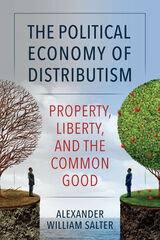

For well over a century the Catholic Church has articulated clear positions on many issues of public concern, particularly economics, capital punishment, foreign affairs, sexual morality, and abortion. Yet the fact that some of the Church's positions do not mesh well with the platforms of either of the two major political parties in the U.S. may make it difficult for Americans to look to Catholic doctrine for political guidance. Scholars of religion and politics have long recognized the potential for clergy to play an important role in shaping the voting decisions and political attitudes of their congregations, yet these assumptions of political influence have gone largely untested and undemonstrated.
Politics in the Parish is the first empirical examination of the role Catholic clergy play in shaping the political views of their congregations. Gregory Allen Smith draws from recent scholarship on political communication, and the comprehensive Notre Dame Study of Parish Life, as well as case studies he conducted in nine parishes in the mid-Atlantic region, to investigate the extent to which and the circumstances under which Catholic priests are influential in shaping the politics of their parishioners.
Smith is able to verify that clergy do exercise political influence, but he makes clear that such influence is likely to be nuanced, limited in magnitude, and exercised indirectly by shaping parishioner religious attitudes that in turn affect political behavior. He shows that the messages that priests deliver vary widely, even radically, from parish to parish and priest to priest. Consequently, he warns that scholars should exercise caution when making any global assumptions about the political influence that Catholic clergy affect upon their congregations.

The Vatican’s dealings with the Weimar Republic and the Third Reich have long been swathed in myth and speculation. After almost seventy years, the crucial records for the years leading up to 1939 were finally opened to the public, revealing the bitter conflicts that raged behind the walls of the Holy See. Anti-Semites and philo-Semites, adroit diplomats and dogmatic fundamentalists, influential bishops and powerful cardinals argued passionately over the best way to contend with the intellectual and political currents of the modern age: liberalism, communism, fascism, and National Socialism. Hubert Wolf explains why a philo-Semitic association was dissolved even as anti-Semitism was condemned, how the Vatican concluded a concordat with the Third Reich in 1933, why Hitler’s Mein Kampf was never proscribed by the Church, and what factors surrounded the Pope’s silence on the persecution of the Jews.
In rich detail, Wolf presents astonishing findings from the recently opened Vatican archives—discoveries that clarify the relations between National Socialism and the Vatican. He illuminates the thinking of the popes, cardinals, and bishops who saw themselves in a historic struggle against evil. Never have the inner workings of the Vatican—its most important decisions and actions—been portrayed so fully and vividly.
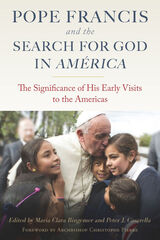

This study of Renaissance adventures and struggles against fate brings to life a brilliant age and its exemplars. It is a story of how several men, including Julius II, worked, intrigued, and made business deals against the backdrop of an Italy invaded by continental countries and England. The future of the once great Republic of Venice was at stake as it was besieged and in desperate need of allies. The Papacy switched sides, breaking the seemingly invincible and mostly foreign League of Cambrai, and saw that Venice was offered a loan by Agostino Chigi, the richest man of his time. The Pope's banker, as daring as Julius II, negotiated with the formidable communal rulers of Venice and Italy was kept from further dismemberment.
As a dramatic account that brings together diplomacy, war, business, and politics, viewed through one long entrepreneurial venture, this book is unique. It juxtaposes differing institutional structures and the various political ways among Italy's city states; it also brings into sharp focus the new men of the Renaissance. Their dealings and lifestyles were original and bold. They were successful against great odds and flaunted their new wealth and position in society in building great palaces and estates and becoming patrons of art. Felix Gilbert is a master teacher of history, and his new work is as luminous as the men and events he tells about.
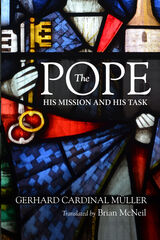
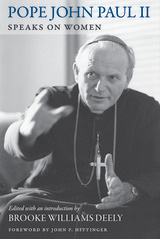
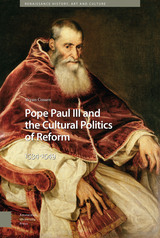
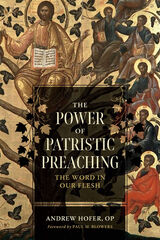
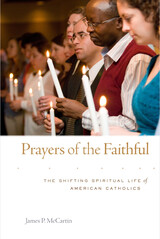
A hundred years ago Catholic believers young and old, rich and poor, would fill churches on holy days, drawn together in prayer and in the conviction that they, the laypeople, needed the clergy and patron saints to mediate between them and their God. Today a Catholic believer in America is as likely as not to find God for herself.
This book traces dramatic changes in the practice of faith among American Catholics through evolving ideas about prayer. Where so many have seen the movement of American Catholics away from traditional devotional practices as a symptom of encroaching secularism, author James P. McCartin shows how the changing practice of prayer itself was the primary catalyst behind Catholics’ growing sense of spiritual independence.
Prayers of the Faithful reveals how, over the decades, Catholics’ ways of praying underwent a significant shift alongside the larger transformations of American society and culture. The book documents the novel ways of praying that transcended the formal rites of earlier generations. Whether “praying in tongues” or working on behalf of social justice or participating in public protests as outpourings of prayer, lay Catholics consistently expanded their notions of praying. And in doing so, McCartin suggests, they reshaped and redefined American Catholicism. By examining the spiritual life of prayer over the twentieth century, this book thus opens up new ways of understanding Catholics, their church, and their place in American life.
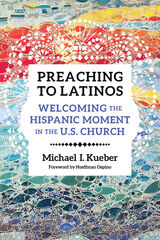
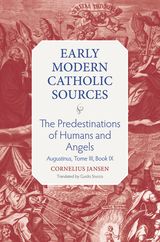

¡Presente! develops a lived theology of nonviolence through an extended case study of the movement to close the School of the Americas (also known as the SOA or WHINSEC). Specifically,it analyzes how the presence of the dead—a presence proclaimed at the annual vigil of the School of the Americas Watch—shapes a distinctive, transnational, nonviolent movement. Kyle B.T. Lambelet argues that such a messianic affirmation need not devolve into violence or sectarianism and, in fact, generates practical reasoning.
By developing a messianic political theology in dialogue with the SOA Watch movement, Lambelet's work contributes to Christian ethics as he explores the political implications of the resurrection of the dead. This book contributes to studies of strategic nonviolence and civil resistance by demonstrating how religious and moral dynamics remain an essential part of such struggles.
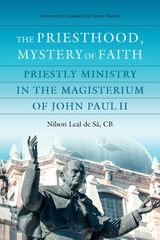
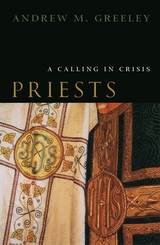
No stranger to controversy himself, Greeley here challenges those analysts and the media who parrot them in placing the blame for recent Church scandals on the mandate of celibacy or a clerical culture that supports homosexuality. Drawing upon reliable national survey samples of priests, Greeley demolishes current stereotypes about the percentage of homosexual priests, the level of personal and professional happiness among priests, the role of celibacy in their lives, and many other issues. His findings are more than surprising: they reveal, among other things, that priests report higher levels of personal and professional satisfaction than doctors, lawyers, or faculty members; that they would overwhelmingly choose to become priests again; and that younger priests are far more conservative than their older brethren.
While the picture Greeley paints should radically reorient the public perception of priests, he does not hesitate to criticize the Church's significant shortcomings. Most priests, for example, do not think the sexual abuse problems are serious, and they do not think that poor preaching or liturgy is a problem, though the laity give them very low marks on their ministerial skills. Priests do not listen to the laity, bishops do not listen to priests, and the Vatican does not listen to any of them. With Greeley's statistical evidence and provocative recommendations for change—including a national "Priest Corps" that would offer young men a limited term of service in the Church—Priests offers a new vision for American Catholics, one based on real problems and solutions rather than on images of a depraved, immature, and frustrated priesthood.
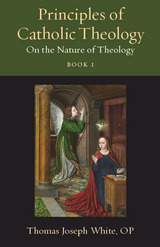


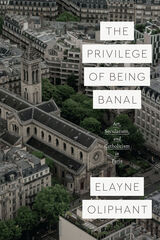
Exploring the violent histories and alternate trajectories effaced through this banal backgrounding of a crucial aspect of French history and culture, this richly textured ethnography lays bare the profound nostalgia that undergirds Catholicism’s circulation in nonreligious sites such as museums, corporate spaces, and political debates. Oliphant’s aim is to unravel the contradictions of religion and secularism and, in the process, show how aesthetics and politics come together in contemporary France to foster the kind of banality that Hannah Arendt warned against: the incapacity to take on another person’s experience of the world. A creative meditation on the power of the taken-for-granted, The Privilege of Being Banal is a landmark study of religion, aesthetics, and public space.

The United States was founded on a commitment to religious tolerance. Based on this commitment, it has become one of the most religiously diverse and religiously observant liberal democracies in the world. Inherent in this political reality is the question, "What is the appropriate relationship between religious beliefs and public life?" This is not a new question, but in contemporary US politics it has become a particularly insistent one. In this intelligent, wide-ranging book, Kristin Heyer provides new and nuanced answers.
Prophetic and Public employs the discourse of public theology to consider what constitutes appropriate religio-political engagement. According to Heyer, public theology connects religious faith, concepts, and practices to their public relevance for the wider society. Her use of public theology concepts to address the appropriate possibilities and limits for religio-political engagement in the United States is both useful and enlightening.
Heyer approaches the relationship between public morality and religious commitment through the example of the Catholic Church. She looks at two prominent Catholics—Michael Baxter and Bryan Hehir—as a way of discussing norms for practice of public theology. Heyer also analyzes case studies of three US Catholic advocacy groups: The US Conference of Catholic Bishops, NETWORK, and Pax Christi USA. Through her analysis she shows the various ways that the organizations' Catholic identity impacts their social and political efforts. From her investigations come norms that define possibilities and limits for political actions based on religious conviction.
This deeply thoughtful book examines what is truly fundamental and inescapable about public life and private religious belief in the United States. In doing so, it makes skillful use of the tools of theology, philosophy, law, and advocacy to demonstrate that the Catholic Church reveals great diversity in its public theology, providing legitimate options for a faithful response to urgent political issues.
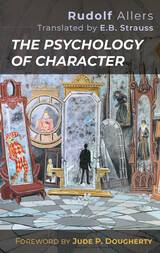
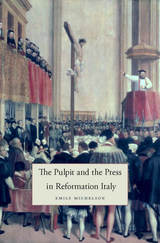
Italian preachers during the Reformation era found themselves in the trenches of a more desperate war than anything they had ever imagined. This war—the splintering of western Christendom into conflicting sects—was physically but also spiritually violent. In an era of tremendous religious convolution, fluidity, and danger, preachers of all kinds spoke from the pulpit daily, weekly, or seasonally to confront the hottest controversies of their time. Preachers also turned to the printing press in unprecedented numbers to spread their messages.
Emily Michelson challenges the stereotype that Protestants succeeded in converting Catholics through superior preaching and printing. Catholic preachers were not simply reactionary and uncreative mouthpieces of a monolithic church. Rather, they deftly and imaginatively grappled with the question of how to preserve the orthodoxy of their flock and maintain the authority of the Roman church while also confronting new, undeniable lay demands for inclusion and participation.
These sermons—almost unknown in English until now—tell a new story of the Reformation that credits preachers with keeping Italy Catholic when the region’s religious future seemed uncertain, and with fashioning the post-Reformation Catholicism that thrived into the modern era. By deploying the pulpit, pen, and printing press, preachers in Italy created a new religious culture that would survive in an unprecedented atmosphere of competition and religious choice.
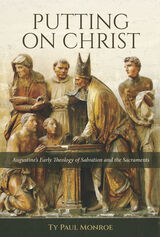
READERS
Browse our collection.
PUBLISHERS
See BiblioVault's publisher services.
STUDENT SERVICES
Files for college accessibility offices.
UChicago Accessibility Resources
home | accessibility | search | about | contact us
BiblioVault ® 2001 - 2024
The University of Chicago Press









